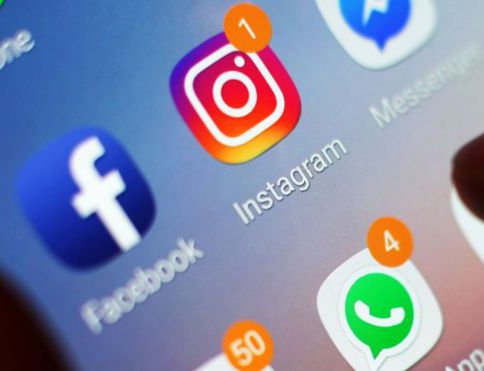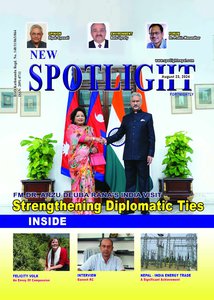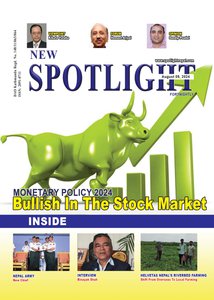
In a famous 1969 Playboy interview, Marshall McLuhan presented his idea of the "Global Village," which is still relevant more than 50 years later in the era of digital technologies and artificial intelligence (AI). Although the problem of growing media is glaring at us in the face, we also sense a lack of understanding of basic processes that is driving this change. Marshall McLuhan’s ideas provide us some framework to tackle this issue. McLuhan’s forecasts and observations provide a lens on the state of technology at this critical juncture of the digital revolution. An analysis of McLuhan's findings reveals that, despite the general optimism about AI's ability to transform our lives completely, we should exercise prudence and seek to understand the effect of media/technology on human society historically.
McLuhan is the author of the book ‘Understanding Media’ andis more widely known for his quote “The medium is the message.” A common argument that we hear from people these days is that “it’s not that technology is bad, but it depends on the way we use the technology that makes it good/bad.” McLuhan would humbly disagree; his insightful quote cuts right through the above argument- it is not necessarily important for what purposes we use our phones, but the fact that for any question that crosses our mind, we resort to the phone immediately is what matters the most. The media we consume changes our sense perception in a much deeper layer, and that is the most important message of any media/medium, instead of how we use it.
McLuhan’s analysis of transition fromtribal cohesion (oral tradition) to individualism (print medium) emphasizes the significant societal effects of media evolution. A little history of the media might illuminate the issue. We can only imagine how the print changed the socio-economic landscape (and -to a large extent- societal values) when literacy was introduced to nonliterate cultures. Before the print media, culture had a balanced ratio of sense perception (touch, auditory, visual, smell, & taste). Just as an example, before the advent of print media, the Iliad and the Odyssey in the Greek culture and the Mahabharata and the Ramayana in the East were the backbone of their respective cultures and most of it was based on oral tradition through the form of stories.After literacy made a dent in this tradition, culture started revolving around reading, writing, and the print culture (newspapers, books, etc.). McLuhan makes a case, and we agree, that print media disturbed this balance and changed our sense ratio to increase visual stress as we consumed print media (and it consumed us). For a tribally morphed culture that emphasized collective values, print media introduced an era of individualism and rationality, reshaping culture, and social organization by fostering a linear, sequential perception of the world. With the emergence of phonetic reading, oral cultures—which strongly emphasized interdependence and shared identity—were replaced by a more individualistic society. Even the Western science was a result of this print media (think about Euclidean space and Newtonian physics). This linearity finally came to bite its tail with the discovery of quantum physics and nonlinear geometry in the twentieth century.
McLuhan even gives credit to the formation of nations as they exist today to print media, given that for the first time in the history of humanity- a large area of land could be controlled by a centralized government. Our governments and the education system have experienced a similar fate. It is structured around an individual's acquisition of discrete facts, logical reasoning, and analytical worldview and is categorized into specific subjects. This is a good reflection of our generation- we have an increasing number of experts but no coherent understanding of our society. Print media disintegrated our culture. Without print media, this homogeneity and specificity is simply unimaginable among a large group of people.McLuhan's perspective goes beyond the realm of the economy to demonstrate how media changes and literacy have historically acted as catalysts for societal change. For example, the development of historical empires such as Egypt and Mesopotamia reflect the importance of writing systems in the administration of large areas and intricate economies. The ability of these empires to maintain documentation, write laws, and administer large areas paved the way for sophisticated centralized governance and economic management.
Similarly, the capacity to document and communicate scientific discoveries was a major driving force behind the advances made during the Scientific Revolution. With the widespread dissemination of ideas made possible by print media, scientists could build on one other's discoveries and accelerate research in previously unthinkable ways. The shift from linear cognitive processes to more dynamic and linked understandings of the natural world that characterize this enlightenment era is consistent with McLuhan's insights regarding the evolution of human cognition and social organization. However, electronic media and automation are bound to change this landscape again. And just as our grandparents' generation experienced a change in values that came with print media, automation & electronic media are ushering in a new era that challenges print-based paradigms.
Driven by the instantaneous nature of electronic media, Marshall McLuhan's notion of the global village foresaw the revolutionary impact of digital technologies on international trade, communication, and cooperation. PwC projects that AI could add as much as $15.7 trillion to the global economy by 2030. Economic systems are becoming more linked and interdependent due to the digital compression of time and space. However, there are drawbacks to this integration and advantages; substantial obstacles are expected.According to the World Economic Forum, AI is expected to displace 85 million jobs worldwide by 2025, while simultaneously creating 97 million new roles. While enabling real-time global communications, the growth of AI also raises questions regarding economic inequality. The uneven distribution of AI's benefits can potentially exacerbate existing global inequities. Furthermore, McLuhan predicted that automation would render traditional jobs obsolete, a forecast that is relevant given how artificial intelligence is currently starting to replace human work.
Instead of helping the people to understand their environments better, McLuhan says that today's education (in both Eastern and Western cultures) is merely used as an "instrument of cultural aggression." McLuhan argues that education needs to evolve in response to technological advancements. Social media platforms use algorithms to show you content that matches your interests and preferences. This can create echo chambers and filter bubbles, where you mostly see information and opinions that you already agree with. This can make your views stronger and less likely to be challenged by different perspectives. In simple terms, echo chambers happen when you only hear what you already believe, while filter bubbles occur when you only see information that fits your preferences. Both can limit your understanding of the world and other people's viewpoints. Additionally, being constantly connected in the digital age can lead to information overload, where you receive too much information to process. This can make you feel overwhelmed and isolated, even though you are always connected to others online. As the media shapes our perceptions and interactions, so must it inform how we educate present/future generations. This evolution calls for a radical transformation in education, moving from traditional methods to more integrative, interactive, and involved approaches that mirror electronic media's nonlinear, networked nature.
As digital technology advances, we must also carefully negotiate the difficulties of transitioning from an individualized culture to a tribal form. A calculated approach is required to guarantee that artificial intelligence and digital technology benefit society rather than worsening economic inequality and replacing conventional job markets. Through a thoughtful and inclusive integration of technology strategy and an open-minded education, we may effectively utilize the potential of the digital revolution to create a more connected, just, and equitable global village for all its members. McLuhan’s view that technology/media, not economy or politics, leads to societal change is undoubtedly a radical proposition. We cannot remain oblivious or just ignore the effects of media- we need to understand our technological milieu better if it is to advance humanity's most inclusive and wide-ranging goals.
Nischal Dhungel has an MSc in Economic Theory and Policy from Bard College, New York.

Nishan Dhungel is a PhD Candidate in Prevention Science at Rutgers University, Camden.


















